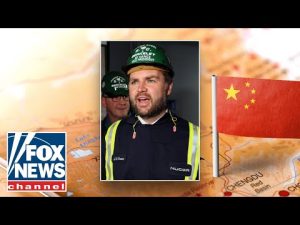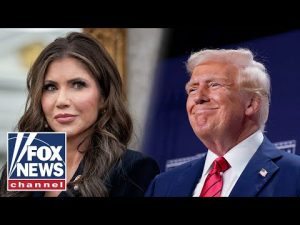In the world of politics, every word and gesture can be scrutinized under the public microscope. Recently, a news commentary video covered a political leader’s cautious response regarding his confidence in the Secretary of Defense. This leader’s reluctance to express absolute trust in an appointee should be perceived with skepticism, but it might highlight a broader issue with how political leaders engage with their responsibilities and their teams.
The leader described the Secretary of Defense as young and talented, qualities that undeniably matter. However, by stopping short of offering a resounding endorsement, he potentially exposed lingering doubts. It’s not uncommon for leaders to reserve their judgments, aiming to protect themselves from future fallout. It raises questions about the level of confidence political figures have in their colleagues, or perhaps, the level of transparency they are willing to provide to the public.
Furthermore, the leader’s assertion that having 100% confidence in anything is a foolish expectation might be a prudent stance to take in volatile political environments. Trust in politics is a nuanced game and absolutes are rare. It’s understandable, given the inherent unpredictability of political tides. However, when it comes to national security and the position of a defense secretary, one would hope for a more definitive stance, reflecting a firm belief in the individual tasked with such vital responsibilities.
Despite the leader’s rationale, his words may do little to comfort citizens who depend on assurance from their government. Knowing that the defense of the country is under competent guidance should not be a matter of quiet hope but one of firm reassurance. Citizens deserve transparency and confidence from their leaders, allowing them to trust in the safety of their nation without doubts implanted by hesitant remarks.
Ultimately, this scenario illustrates a crucial lesson in political leadership. The ability to vocalize trust and confidence can be as important as the trust itself. Leaders must strike a balance between healthy skepticism and conveying steadfast trust in their appointees. This delicate balance, if not well-maintained, may lead to a lack of public confidence in governmental decisions, setting the stage for further scrutiny and debate. In uncertain times, clarity and confidence are needed more than ever, from the corridors of power to the hearts of citizens.







